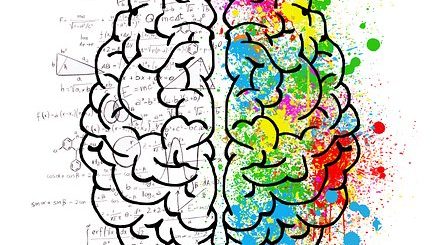Essential Vitamins and Minerals Your Body Needs to Function Properly

Vitamin A
Why should it be included in your diet?
- It can help prevent night blindness.
- It promotes healthy hair and nail growth.
- It helps keep gums, glands, and teeth healthy.
A deficiency can lead to:
- Increased risks of dying from infections like measles
- Higher risks of anemia
- Blindness in children (which is generally preventable)
It can be found naturally in:
- Liver
- Fish oils
- Sweet potatoes
- Broccoli
- Salmon
Vitamin B
Vitamin B is composed of Vitamin B1, B2, B3, B5, B6, B7, B9, and B12.
Why should it be included in your diet?
- It promotes good digestion.
- It supports a healthy appetite and brain function.
- It helps maintain good levels of energy.
A deficiency can lead to:
- Acute digestive issues
- Increased risks of contracting various infections
- Nerve damage
It can be found naturally in:
- Dark green vegetables
- Shellfish
- Beans
- Nuts and seeds
- Chicken
Vitamin C
Why should it be included in your diet?
- Consumption of this vitamin keeps your bones and joints healthy.
- It maintains the digestive tract tissues.
- It helps in fighting illnesses such as the common cold as it boosts the immune system.
A deficiency can lead to:
- Swollen joints
- Swollen and bleeding gums
- Nail deformities
It can be found naturally in:
- Brussels sprouts
- Winter squash
- Leafy greens
- Citrus fruits
- Strawberries
Vitamin D
Why should it be included in your diet?
- It helps your body absorb calcium and promote bone growth.
- It can help you reduce the risks of cardiovascular diseases.
- It plays an important role in regulating the immune system.
A deficiency can lead to:
- Rickets
- Fragile bones (osteomalacia)
- breast, colon and prostate cancer
It can be found naturally:
- In fatty fish
- By spending time in the sunlight
It might be difficult to get the appropriate amount of vitamin D as one ages. It would, therefore, be advisable to take supplements to compensate for the deficiency.
Vitamin E
Why should it be included in your diet?
- It can be used to lessen the harmful effects of certain medical treatments.
- It sometimes helps in improving physical endurance.
- It is believed to slow down damage to body cells.
A deficiency can lead to:
- Weakened immune system
- Nerve damage which can lead to loss of body movement control
It can be found naturally in:
- Vegetable oils
- Sunflower seeds
- Goose meat
- Brazil nuts
- Avocado
Vitamin K
Why should it be included in your diet?
- It is a fat-soluble vitamin that helps maintain bone health.
- It supports normal blood clotting.
- It can help maintain low blood pressure.
A deficiency can lead to:
- vascular calcification, which can result in coronary heart disease.
- Excessive bleeding because the blood is unable to clot.
- Easy bruising.
It can be found naturally in:
- Turnip greens
- Iceberg lettuce
- Mustard greens
- Blueberries
- Grapes
Calcium
Why should it be included in your diet?
- So the body can build and maintain healthy bones.
A deficiency can lead to:
- Hypocalcemia, which can cause muscle spasms and numbness
- Cataracts
- Osteoporosis
It can be found naturally in:
- Dairy products such as milk, yogurt, and cheese
- Dark green vegetables such as kale and spinach
- Sardines
Since our body is unable to produce calcium on its own, we have to rely on our diet to get our daily requirements. Just like vitamin D, it might be a good idea to get calcium as a supplement from a pharmacy.
Iron
Why should it be included in your diet?
- It can help to preserve general energy and focus.
- It supports gastrointestinal processes and the immune system.
- The intake of iron can also help to regulate body temperature.
A deficiency can lead to:
- Heart palpitations
- Anemia
- Unusual tiredness
It can be found naturally in:
- Chicken liver
- Hulled hemp seeds
- Spinach
- Legumes
- Red meat, such as beef, lamb and pork
Magnesium
Why should it be included in your diet?
- Magnesium helps promote bone health.
- It plays an important role in the synthesis of fatty acids and proteins.
- It keeps the heart in good shape.
A deficiency can lead to:
- Insulin resistance
- Coronary heart diseases
- Low calcium levels
- Migraines
It can be found naturally in:
- Sunflower seeds
- Peanut butter
- Kidney beans
- Sesame seeds
- Shredded wheat cereal
While those vitamins and minerals help in maintaining good health, they are not the only nutrients your body needs. If you want to provide your body with all the nutrients it needs to stay in good health, you’ll have to regularly have a balanced diet.



